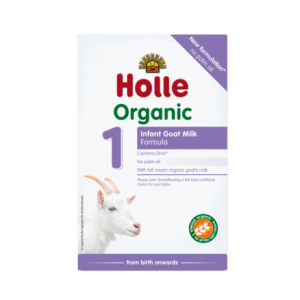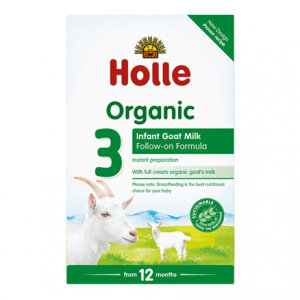Goat’s milk is easily tolerated. Goat’s milk is an excellent basis for baby food, as it is formed in the goat’s udder (apocrine secretion, similar to human breast milk). Milk formed in a cow’s udder follows a merocrine secretion process. Goat’s milk contains more short and medium-chained fatty acids than cow’s milk. These are easier for the body to absorb than long chains, and therefore better digested. The fat globules in goat’s milk are smaller than those found in cow’s milk. They result in a larger total surface area, enabling enzymes to break them down better, which in turn further improves digestibility. Many people with sensitive stomachs love goat’s milk. Six of the ten essential amino acids humans require through food intake are more commonly found in goat’s milk than cow’s milk. αS1 casein (casein fraction) and β-lactoglobulin (whey protein) in particular are two proteins known to trigger allergic reactions. Goat’s milk contains considerably less αS1 casein and β-lactoglobulin than cow’s milk.
Goat Milk Formula
Holle Goat Milk Formula Organic Infant Baby Milk Stage 1 USA Seller 400g UK/German version
Goat Milk Formula
Holle Goat Stage 2 Organic Baby Milk Formula USA Seller 400g
Goat Milk Formula
Holle Goat Stage 3 Organic Baby Milk Formula Growing Up USA Seller 400g



